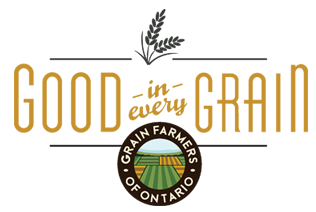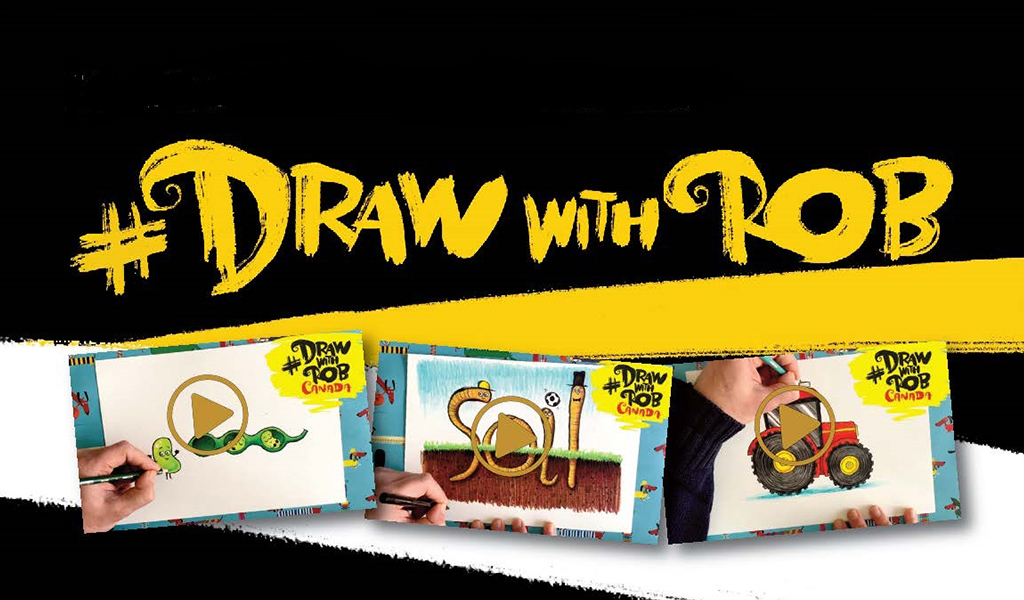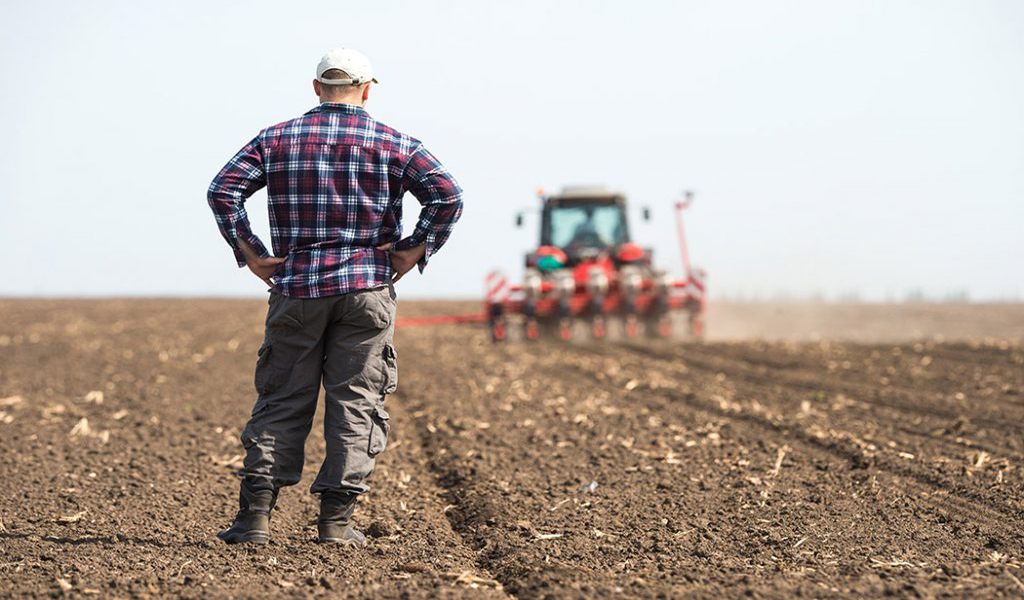Ontario Farming STEMterprise
A unique curriculum-based program that helps Ontario students develop STEM skills as they learn where our food comes from.
Got a question for the Good in Every Classroom team? Send us an email to web@gfo.ca.
Putting STEM to work
Are your students budding entrepreneurs? Engage their interest with Ontario Farming STEMterprise. Help them build their skills in science, health, language, math, and more.
Our FREE easy-to-use curriculum-based program helps students learn about innovation through agriculture. You’ll be impressed by what your students can achieve!
Project Overview Quickstart Guide Curriculum AlignmentEducators can order STEMterprise classroom kits to use with this program. Find the order form under Stage 3.
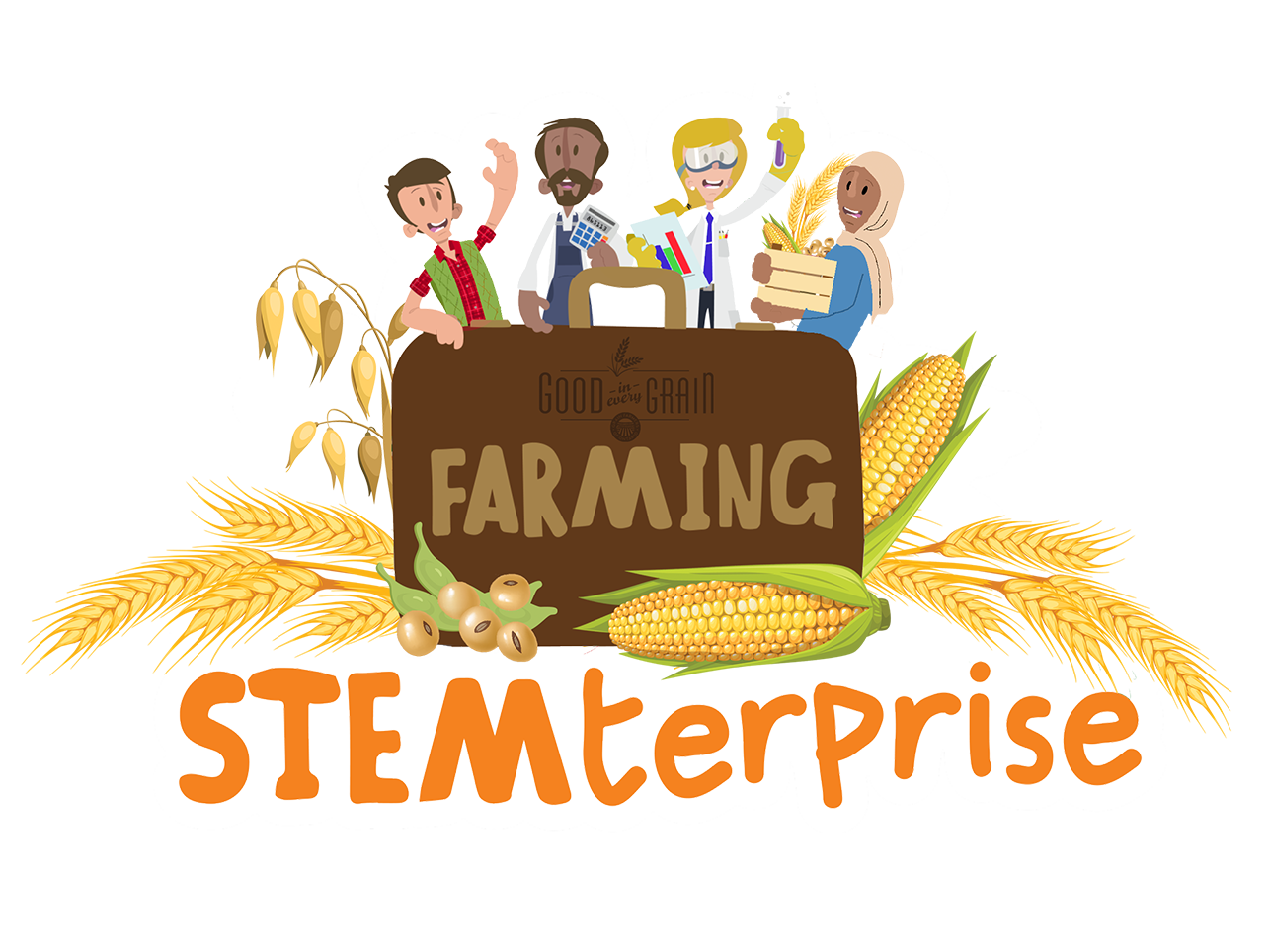
Recommended grades: Grade 3 specifically, applicable to other grades
Resources: Opportunity for a session with a farmer to discuss growing crops and how farmers work to protect the environment; link to introductory video; downloadable lesson plans; PowerPoint presentations; worksheets
Class Delivery Options: In person; distance learning
Time: Lessons are designed to be completed in 40 minute blocks
Curriculum connections: Science; Math; Language; Health; Health and Physical Education; Engineering; Language Arts; and Math
Additional information: The program and all of the resources are editable and adaptable. Lessons can be woven throughout the year as a special activity, or can be done in a shorter period of time.
Notre programme de STIMpreneurs en Agriculture de l’Ontario est maintenant disponible en français!
STEMterprise lesson plans and resources
Click on the stage titles below to expand details and materials.
Download All MATERIALS *NEW* Download All MATERIALS IN FRENCHStage 1: Entrepreneurship Challenge
Ontario students are bored with their current snack choices and need an exciting, innovative new option. STEMterprise challenges students to meet the demand by designing a granola bar to fuel their bodies for learning!
Lesson 1 – The Challenge
An introduction to the project and to entrepreneurship.
Lesson Plan SlideshowStage 2: Starting a Business
Students will explore grains as the foundation of their business, examine the competition, define their target customer, determine a business name and slogan, and design a logo.
Lesson 1 – Analyzing the Competition
This lesson offers a taste testing experience and provides real-life practice of organizing data. Students love this activity!
Lesson Plan SlideshowLesson 2 – Audience, Business Name and Logo
Students will collaborate to make decisions about their future business. Using Canva or other media is encouraged.
Lesson Plan SlideshowStage 3: Becoming a Plant Expert
In this stage, students discuss where food comes from and learn about plants and their characteristics and needs as they begin to think about their granola product.
Order Free Seed KitsLesson 1 – Where Does our Food Come From?
This lesson will help students understand food origins and make connections from plants to the foods they eat.
Lesson Plan SlideshowLesson 2 – Parts of a Plant
Vertical relay is receiving top marks from educators and is a hands-on way to learn the parts of a plant.
Lesson Plan SlideshowLesson 3 – What a Plant Needs to Grow
This lesson covers the characteristics of plants, especially their basic needs – air, water, light, heat and nutrients.
Lesson Plan SlideshowLesson 4 – Planting Your Seeds
You can get materials for this activity by ordering free STEMterprise kits.
Lesson Plan SlideshowStage 4: Soil in the Environment
Students will learn how important soil is and why it needs to be healthy. They will explore human impact on soil and farmers’ role in soil health and the technology they use to mitigate environmental harm. Designing a new farming machine is an optional bonus activity.
Lesson 1 – What is Soil?
Students will investigate soil composition, diversity and composting.
Lesson Plan SlideshowLesson 2 – Soil Types in Ontario (and Regions)
Students will learn about soil types, regions of Ontario and practice being an agronomist (career alert!)
Lesson Plan SlideshowLesson 3 – Compaction and Erosion
This lesson covers two soil conditions – compaction and erosion- the causes and consequences of them and how it can be prevented.
Lesson Plan SlideshowLesson 4 – Soil Nutrients
Students will learn about the three essential soil nutrients, the importance of soil health and how farmers care for their fields.
Lesson Plan SlideshowLesson 5 – STEM and Technology on Farms
A review of soil and a discussion about the use of technology on farm as a way to protect soil.
Lesson Plan SlideshowLesson 6 – Designing an Innovative Farm Machine
This is an optional STEM activity that consolidates a student’s learning about soils and technology.
Lesson Plan SlideshowStage 5: Recipe Design and Market Research
Students will learn about the role of grains in a healthy diet, apply what they learn to designing and marketing a granola bar, and write their recipe. Making the bars is an optional activity.
Lesson 1 – Grains in our Diet
Students will learn about grains in their diet to prepare them to make choices about what to include in their granola bar recipe.
Lesson Plan SlideshowLesson 2 – Market Research
Students will conduct an inquiry about flavour profiles and preferences among school mates. They will collect and chart data to inform their decision.
Lesson Plan SlideshowLesson 3 – Designing a Healthy Recipe
Students will learn how to create and follow a recipe. Templates are provided.
Lesson Plan SlideshowStage 6: Market Your Product
Students will determine the expense of creating a unit of their product and decide on a selling price to allow a profit. They will explore how to spread the word about their great new product, create advertising, and perform promotional material for various media. Students will also apply their imaginations and 3-dimensional thinking to creating sustainable packaging for their products.
Lesson 1 – Decide on a Selling Price
We’ve provided worksheets and templates that will guide students through pricing their product.
Lesson Plan SlideshowLesson 2 – Media and Audience
Students will define their audience as they work towards promoting their business.
Lesson Plan SlideshowLesson 3 – Promote Your Product
This lesson provides an exploration of marketing – methods of promotion, words that sell, messages, etc. Students create their own poster or advertisement.
Lesson Plan SlideshowLesson 4 – Packaging
Students will consider the sustainability of their packaging as they design a suitable way to present their granola bars. They will learn that there is a career in package engineering.
Lesson Plan SlideshowStage 7: Business Showcase
In this final stage of STEMterprise, students will have the opportunity to showcase their business. There are several ways to do this, whether your students baked granola bars or not.
Educators from across the province have been sharing their approaches and we’ve condensed them into three recommendations. A variety of teacher-inspired resources are provided to get you started!
Lesson Plan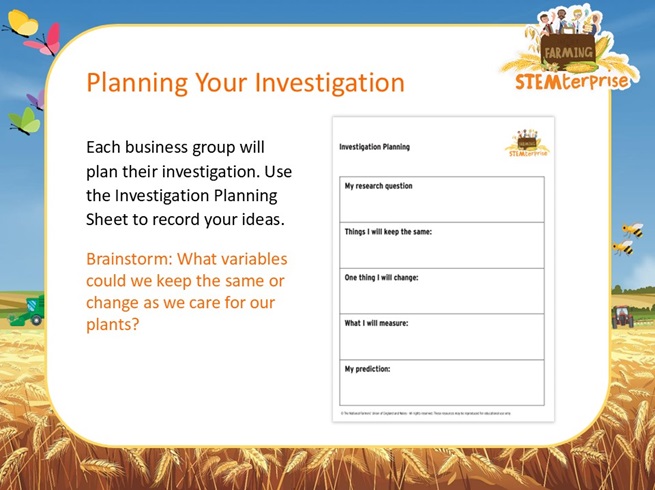
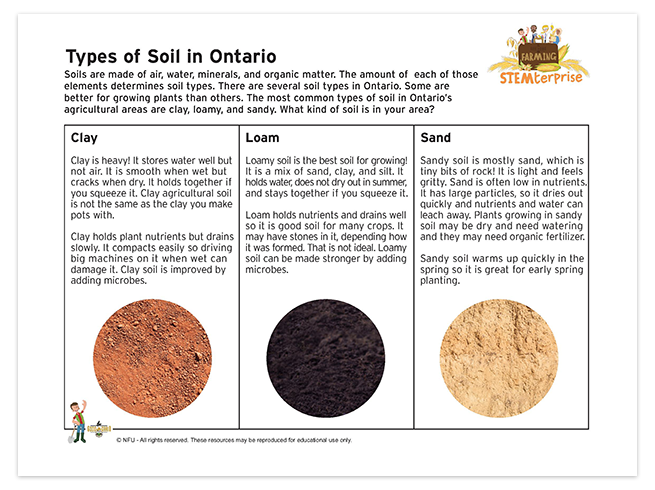
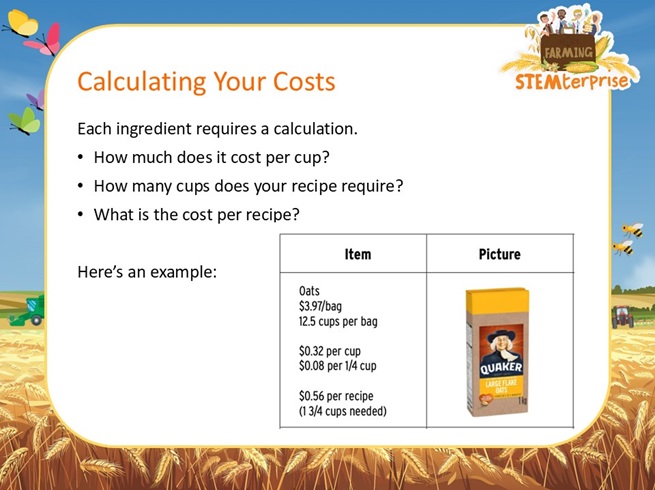
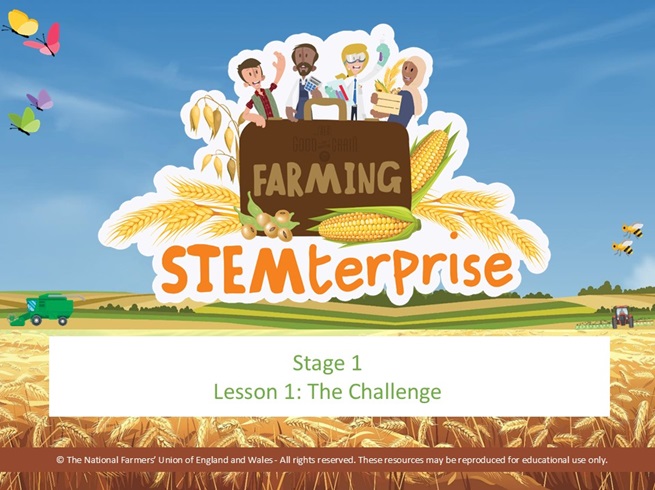
Get Notified
We’re busy creating more resources and learning materials. Subscribe to our Good in Every Classroom newsletter to be notified when they are available.
